Trump Company Guilty of Tax Fraud
The years-long NYC investigation finally bears some fruit.
NPR (“Former President Donald Trump’s company is found guilty of criminal tax fraud“):
A jury in Manhattan has found former President Donald Trump’s company guilty of a long-running criminal tax fraud scheme that lasted into his presidency.
Though Trump and his company have repeatedly faced criminal investigations, this case marks the first time his company has been charged, tried, and convicted on criminal charges.
Trump built his political brand, in large part, on his claim that he was an aggressive and successful businessman.
In all, the jury found two entities controlled by Trump guilty on 17 counts of criminal tax fraud and falsifying business records. The maximum penalty is $1.6 million.
“This was a case about lying and cheating, false documents to the aid of evading taxes for the benefit of individuals and the corporation,” Manhattan district attorney Alvin Bragg said, speaking with reporters after the verdict was delivered.
In a statement, the Trump Organization criticized the verdict and promised to appeal, arguing that blame should fall on the company’s executives and not on the firm itself.
“The notion that a company could be held responsible for an employees’ actions, to benefit themselves, on their own personal tax returns is simply preposterous,” the statement read.
An attorney for the Trump corporation also sought to distance the former president from the outcome.
“Every witness repeatedly testified that President Trump and the Trump family knew nothing about Allen Weisselberg’s actions,” Susan Necheles said in a statement.
Prosecutors had previously secured a guilty plea last summer from by Trump’s former longtime chief financial Officer Allen Weisselberg, who became the star witness for the prosecution in the case.
AP (“Trump Organization convicted in executive tax dodge scheme“):
Donald Trump’s company was convicted of tax fraud Tuesday for helping executives dodge taxes on extravagant perks such as Manhattan apartments and luxury cars, a repudiation of financial practices at the former president’s business as he mounts another run for the White House.
A jury found two corporate entities at the Trump Organization guilty on all 17 counts, including charges of conspiracy and falsifying business records. Trump himself was not on trial. The verdict in state court in New York came after about 10 hours of deliberations over two days.
The conviction was validation for New York authorities who say their three-year investigation into Trump and his businesses is continuing. The probe, which began as an inquiry into hush-money payments made on Trump’s behalf, later morphed into an examination of the company’s asset valuation and pay practices.
[…]
Trump, a Republican who launched his 2024 campaign last month during the trial, blasted the verdict as a part of a Democrat-led “MANHATTAN WITCH HUNT!”
“This case is unprecedented and involved no monetary gain to these two Corporations,” Trump said in a statement, adding: “New York City is a hard place to be ‘Trump.’”
The verdict adds to mounting legal woes for Trump, who faces a criminal investigation in Washington over the retention of top-secret documents at his Mar-a-Lago estate, as well as efforts to undo the results of the 2020 presidential election.
WaPo (“Trump Organization convicted in N.Y. criminal tax fraud trial“):
Former president Donald Trump’s namesake company was convicted Tuesday of tax crimes committed by two of its longtime executives after a Manhattan trial that gave jurors a peek at some of the inner workings of the Trump Organization’s finances.
The real estate, hospitality and golf resort operation headquartered at Trump Tower on Fifth Avenue faces the possibility of a $1.6 million fine at a sentencing scheduled Jan. 13. New York Supreme Court jurors began deliberations Monday.
The company was charged with scheme to defraud, conspiracy, criminal tax fraud and falsifying business records. Trump has not been charged with wrongdoing.
[…]
In the criminal case, jurors saw a number of Trump Organization payroll and expense records spanning years that showed how executives received perks like luxury apartments and Mercedes Benzes while purposely concealing them from tax authorities.
“This was a case about lying and cheating, false documents to the end of evading taxes for the benefit of individuals and the [Trump Organization],” Manhattan District Attorney Alvin Bragg said at the courthouse after the verdict. “They have now been held accountable in a court of law.”
[…]
Prosecutors built the case largely around Weisselberg, who pleaded guilty in August to 15 counts including tax fraud, conspiracy and grand larceny. He was promised a steeply reduced sentence of five months in jail in exchange for testifying against the company. He had faced up to 15 years in prison.
In his testimony, Weisselberg detailed how he and the company’s comptroller, Jeffrey McConney, schemed to cheat state and federal tax authorities beginning in 2005 and lasting more than a decade. Weisselberg used the company to cover major personal expenses like rent for a luxury apartment on the Hudson River, Mercedes Benz leases for himself and his wife, and private school tuition for his grandchildren.
In some instances, he paid the company back for his personal expenses, which allowed him to use pre-tax compensation illegally. Other expenses were paid for by the company but not reported as taxable income as required by tax laws.
McConney, who admitted in his testimony to committing crimes, was granted immunity under New York law because he was called by prosecutors as a grand jury witness in the case.
NYT (“Trump Organization Found Guilty in Tax Fraud Scheme“):
The Trump Organization, the family real estate business that made Donald J. Trump a billionaire and propelled him from reality television to the White House, was convicted on Tuesday of tax fraud and other crimes, forever tarring the former president and the company that bears his name.
The conviction on all 17 counts, after more than a day of jury deliberations in State Supreme Court in Manhattan, stemmed from the company’s practice of doling out off-the-books perks to executives: They received luxury apartments, leased Mercedes-Benzes, extra cash at Christmas, even free cable television. They paid taxes on none of it.
[…]
Prosecutors did not charge Mr. Trump, but they invoked him throughout the monthlong trial, telling jurors that he had personally paid for some of the perks and had even approved a crucial aspect of the scheme. The prosecution sounded a drumbeat of damning evidence about a freewheeling culture at his company, revealing that pervasive illegality flourished there for years.
“We got to see the inner workings of the Trump Organization: the greed, the lies, the cheating,” the Manhattan district attorney, Alvin L. Bragg, said in an interview on Tuesday evening, reflecting on a victory that marked the height of his young tenure.
[…]
The case against Mr. Weisselberg was barreling toward trial until he struck a plea deal with prosecutors in August. Mr. Weisselberg, who is on paid leave from the Trump Organization, declined to cooperate with the broader investigation into Mr. Trump but agreed to testify against the company.
At trial, the defense lawyers questioned Mr. Weisselberg’s motives for testifying, noting that his agreement with prosecutors called for him to spend as few as 100 days in jail.
Over two emotional days on the witness stand, Mr. Weisselberg admitted that he had reaped about $1.8 million in indirect and hidden compensation, allowing him to evade hundreds of thousands of dollars in taxes. The benefits included a rent-free apartment in a Trump building overlooking the Hudson River; leased cars for him and his wife; and private school tuition for their grandchildren.
Mr. Trump personally paid the tuition, Mr. Weisselberg testified, linking the former president to the broader scheme. To support the contention that Mr. Trump was “explicitly sanctioning tax fraud,” prosecutors produced a document he signed that they said showed him authorizing one of the scheme’s crucial elements: a reduction in salary for another executive who was receiving clandestine benefits.
Although no evidence emerged that Mr. Trump knew his executives had failed to pay taxes on the payouts, prosecutors noted that he was a hands-on boss, particularly when it came to money.
[…]
If the company had any hope of acquittal, it rested on the cross-examination of Mr. Weisselberg, who admitted to betraying his employer and carrying out the scheme without Mr. Trump’s approval. Asked by a defense lawyer, Alan Futerfas, whether Mr. Weisselberg was embarrassed about his behavior, the executive, near tears, replied softly, “More than you can imagine.”
In closing arguments, Ms. Necheles told the jury that Mr. Weisselberg had repeatedly testified to acting for his own benefit, not to help the company or the Trump family. And the judge overseeing the case, Juan Merchan, explained to jurors that for the company to be guilty, Mr. Weisselberg could not have undertaken the scheme merely for his own personal gain.
[…]
The company was able to save a small amount on taxes by not reporting the perks to the tax authorities, the prosecution noted. And it paid those benefits instead of awarding bigger salaries, theoretically saving some money on compensation.
“It was a win-win — a way to get more money into executive pockets while keeping their own costs as low as possible,” Mr. Steinglass said. He argued that there was also a “tremendous amount of evidence” that Mr. Weisselberg had indeed intended to benefit the company, even if it was to a far lesser extent than himself.
I must say that, for the first criminal conviction that directly touches Trump for his business malfeasance, this is underwhelming. And I came into this with zero doubt that Trump is a criminal and tax cheat.
It was only deep into the NYT account that I even understood what the company’s crime was. The company’s claim that this was executives hiding payments-in-kind on their personal income tax returns is not only plausible but true. But, yes, it seems quite likely that the company—and Trump himself—went along with it to yield modest savings in executive compensation.
And I now understand why NYC prosecutors balked months back at bringing the case. Later in the NYT story:
The Trump Corporation and Trump Payroll Corp. are not central to Mr. Trump’s moneymaking enterprise. They essentially perform back-office functions, employing and paying top executives.
And although the reputational toll of felonies could make it harder to expand the company, the Trump Organization was already running in place. Rather than tackling new projects in recent years, the company has largely tended to its existing properties, including office and apartment buildings in New York, some hotels and 16 golf courses that it owns or manages.
That pullback was underway before the district attorney’s office opened its investigation into Mr. Trump in 2018. Under Mr. Bragg’s predecessor, Cyrus R. Vance Jr., the inquiry initially focused on the $130,000 payment to the porn star, Stormy Daniels, before pivoting to the broader examination of whether Mr. Trump inflated the value of his properties.
Late last year, Mr. Vance instructed the prosecutors to begin presenting evidence about Mr. Trump to a grand jury.
But soon after Mr. Bragg took office in January, he and his top aides developed concerns about proving that Mr. Trump had intended to break the law, a necessary element of proving the crime. Mr. Bragg balked at seeking an indictment, a decision that prompted the resignation of the two senior prosecutors leading the investigation and stirred a public uproar.
Honestly, that’s a reasonable concern. While, again, I have no doubt that Trump happily cheats on his taxes to the maximum extent he thinks he can get away with—even if it’s just a matter of the fines and other penalties being a small price to pay—he’s also incredibly sloppy and personalistic in his leadership style. It wouldn’t shock me at all if he’d paid the tuition for Weisselberg’s grandchildren as a “one hand washing the other” measure without any notion that it was problematic.
Indeed, this all smacks of a runaway prosecution, starting with one set of transgressions and eventually settling on something that could be charged. Indeed, I’m guessing that the prosecution cost well more than the $1.5 million fine that the organization may eventually pay after it exhausts its appeals.
Then again, maybe, this is just the start:
Things may be different now.
Mr. Bragg is expected to continue pursuing his investigation into Mr. Trump, and he has refocused on the hush money in recent months, The New York Times reported in November. His prosecutors are also seeking to apply renewed pressure on Mr. Weisselberg to turn on Mr. Trump.
“To me, this guilty verdict against the Trump Organization is not the end of, but just the beginning of juries holding the former president, his corporation and his inner circle accountable,” Mr. Vance said. “This was a good day for the Manhattan district attorney’s office.”
Again, I’m hoping that’s the case. I have little doubt that Trump personally is involved in myriad criminal conspiracies surrounding his namesake companies. Or, for that matter, that he committed multiple crimes while President in furtherance of his business interests. But, if this is all there is, it’s not much.

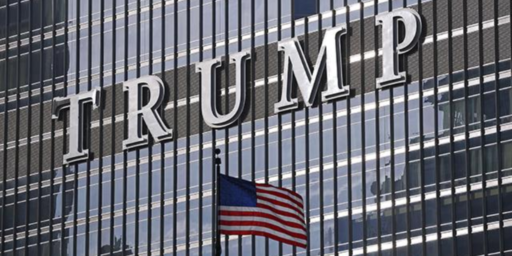
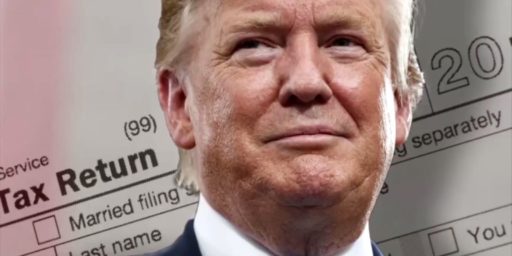
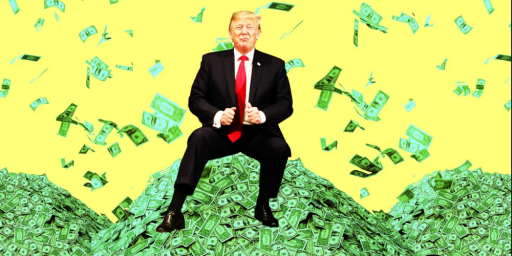
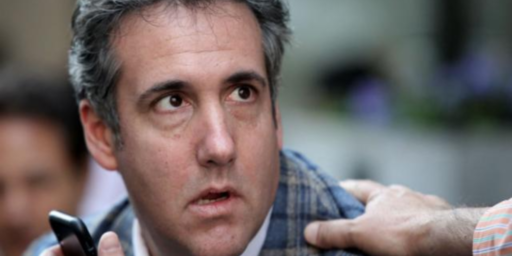
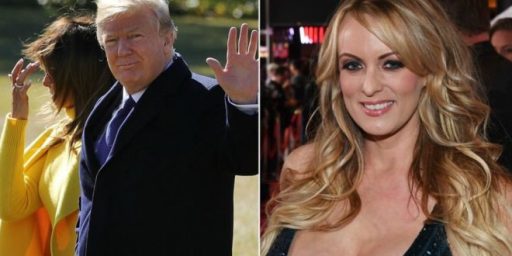
And this is how rich people “get away with it”.
I mean how many people are doing hard time for what would be, to a wealthy person, a “petty crime”? Having a crack pipe with residue or having strung three minor offenses together has shackled people with life sentences.
I guess if your are rich is has to be a crime involving a sum of money that is a lot for them, forget about whether or not it’s two years salary for a working person. And let’s not forget this is a guy who was voted in as president of the United States. There are people out that making the same argument as the OP for Trump who would have impeached and put Clinton in jail over lying about a blow job in a deposition wholly unrelated to the original investigation.
Having said all that I think this is more the set up trial for going after Trump personally. I mean it’s not like his originations haven’t been cited, sectioned and closed for fraud before. God if there were only a three strike rule for white collar crime we could put Trump in jail for life with the people who had a single rock of crack excavated in the cushions of their car during a traffic stop.
@Rick DeMent: There’s something to that, for sure. White collar crime is often much harder to prove and the investigation itself is often more expensive than the allowable fines. In this case, at least one of the execs is going to do jail time; but not all that much. Trump wasn’t even charged.
A couple of thoughts. This is indeed small change for the Trump Organization and for Trump himself. It kinds of shocks me that (and yet doesn’t surprise me) how small and petty this little crime is. Sort of like Trump himself.
Deterrence is the main reason to go after white collar crime. Easy to do, hard to prosecute, society has to incentivize keeping the honest people honest. That’s why so many small business owners are against the IRS, the stuff that goes through LLCs and other legal structures is pretty astonishing.
James, they proved the case they thought they could, and in your mind it might not be very much, but their is much, much more behind all that. There is a reason why they worked so hard to get Al Capone on a few measly tax charges, and it wasn’t because of those measly tax charges.
@Scott: Dan Rostenkowski, one of the most powerful members of Congress at the time, was brought down for dipping into his office’s account for stamps (ok, a bit more complicated, but it was still pocket change). It was a bit eye opening for me. Not the criminality – he was from Chicago and I’m from Chicago so I have no illusions about the criminality of Democratic politicians. But rather the pettiness. My reaction was, essentially, that if you are going to steal, steal big on one or two things and be scrupulously honest everywhere else. But I remember a former prosecutor, when challenged by this exact thought, pointing out that was the way honest people thought about crime. But he felt that to criminals the crime is the thing, not so much the money. The money is important, but the feeling of getting one over on the suckers is what really drives them. So to expect them to maximize money is focusing on the wrong reward. They focus on maximizing the reward they care about – “fleecing the losers”.
As for why prosecutors charge only a small fraction of the crimes they may believe a defendent committed, well, I’m reminded of what our own Michael says about his turbulent younger days: “I had to get away with every single crimes, but the cops only had to get me for one.”
It’s a start, and that is something.
@Rick DeMent:
I suspect there is a sizable percentage of the GOP base that admires white collar crime, at least the tax fraud version. First, they see the crime as “victimless” as it’s typically other corporations or the government being cheated. Second, as they’d like to cheat the powerful as well, especially the IRS, they envy people who can do something that is beyond their “skills” in the way they wish they could hit an NBA 3-pointer as well as Stephen Curry.
And thus, we see 1) how it is that Trump didn’t get charges (no one can/will rat him out) and 2) how Trump Industries–and principally a very small sub-entity of it are the only defendants (the principle agent of the crime was granted immunity). Another example of how the rich “get away with it.”
@just nutha:
I assume all those witnesses who testified that Trump and his family members had absolutely no knowledge of Weisselberg’s actions had much to gain and nothing to lose by so doing.
Yup…this is but a paper-cut.
And I hope that the former guy dies by a thousand paper-cuts.
@CSK: So do I. And as soon as prosecutors can prove their relative gains and losses, perjury charges can be made. But not before. It’s another “how the rich (and rich adjacent) get away with it.”
1.6 million max fine? That’s…nothing. Peanuts, even if you don’t think he’s nearly as wealthy as he claims. If Trump had any brains (which he doesn’t) he’d pay the fine and laugh as the case goes away. Appealing just keeps it in the public eye.
Of course it cost more than that to investigate and prosecute for the last several years, so no wonder the rich get away with it. It’s a perfectly fair argument to note that the prosecutor’s office didn’t spend taxpayer money very wisely in this case (you may disagree for other reasons, but at the bottom line spending more than you can recover is unquestionably a negative). My takeaway is penalties for this sort of thing need to be massively ramped up. If we believe in deterrence (which we do in sentencing for pretty much every other crime) then a max penalty here of 160 million (just to throw out a #) would both discourage organizations from engaging in this BS in the first place AND give prosecutors an actual bottom line incentive to investigate.
Sorry, I can hope there is more to come I guess. But this is a very disappointing outcome today.
In the words of a law firm TV-character, “If you have the right lawyer, we have the best legal system in the world.,”
@Just Another Ex-Republican:
I disagree. If you just ran up the penalties, it’s the mid-size and small companies that will feel the brunt.
Rather, make the penalties a large fraction of a company’s revenue (gross income from all sources, not profits), for the time period when the crimes occured. If Benito and Co. were doing this for ten years, as an example, then fine them 30% of their revenue for those ten years. The incentive shifts to larger companies. More revenue, higher fines, better headlines.
@Kathy: I think we agree actually. I didn’t mean to imply that it would be a one-size fits all penalty in the slightest. As a general rule I’m very much in favor of penalties based on impact. Flat fines that fall equally on the poorest and richest end up making the lives of the poor worse, but are a negligible cost on the rich. I remember reading about one person (perhaps apocryphal) who would routinely park in no-parking zones. Why? Because as far as she was concerned it was basically the same as paid parking-she just paid what was to her a minuscule fine and never saw a reason to stop because the penalty wasn’t based on income or wealth and didn’t scale for repeat offenders either.
More regularly, you hear of athletes fined $5000 or some such amount for an infraction. Even there, if you make $50 million a year because you’re a star as opposed to some sort of minimum rookie $275k salary the penalty hits one player far more than the other (not that 275k makes them poor of course).
But as far as I’m concerned, whether talking about individuals or companies, if the penalty for something is monetary it has to scale in some way based on the impact to the offender (and revenue is one of several ways to do so). When the penalties don’t scale you end up where we are now, where the wealthy can buy their way out of having to follow the rules the rest of us have to respect.